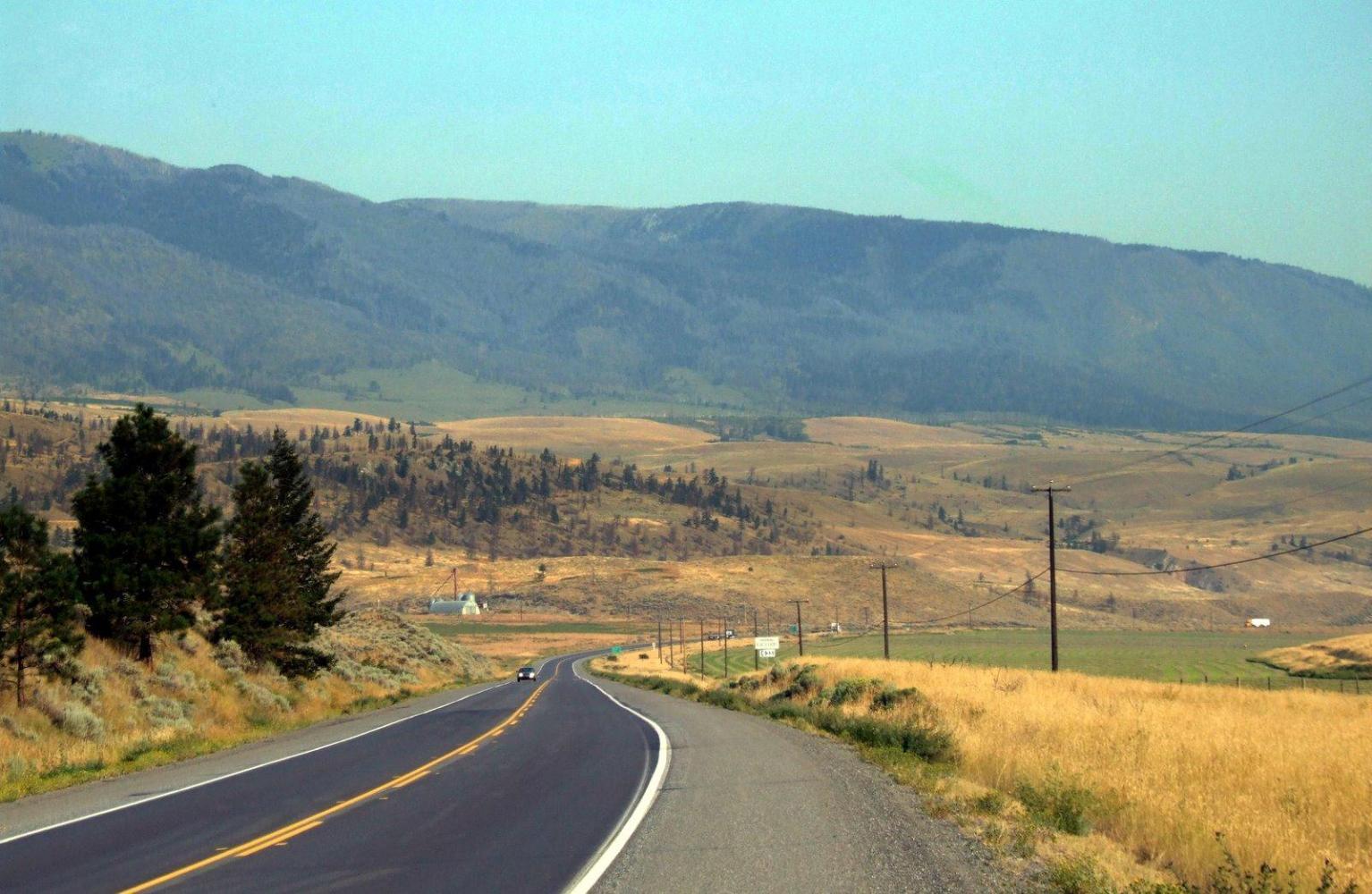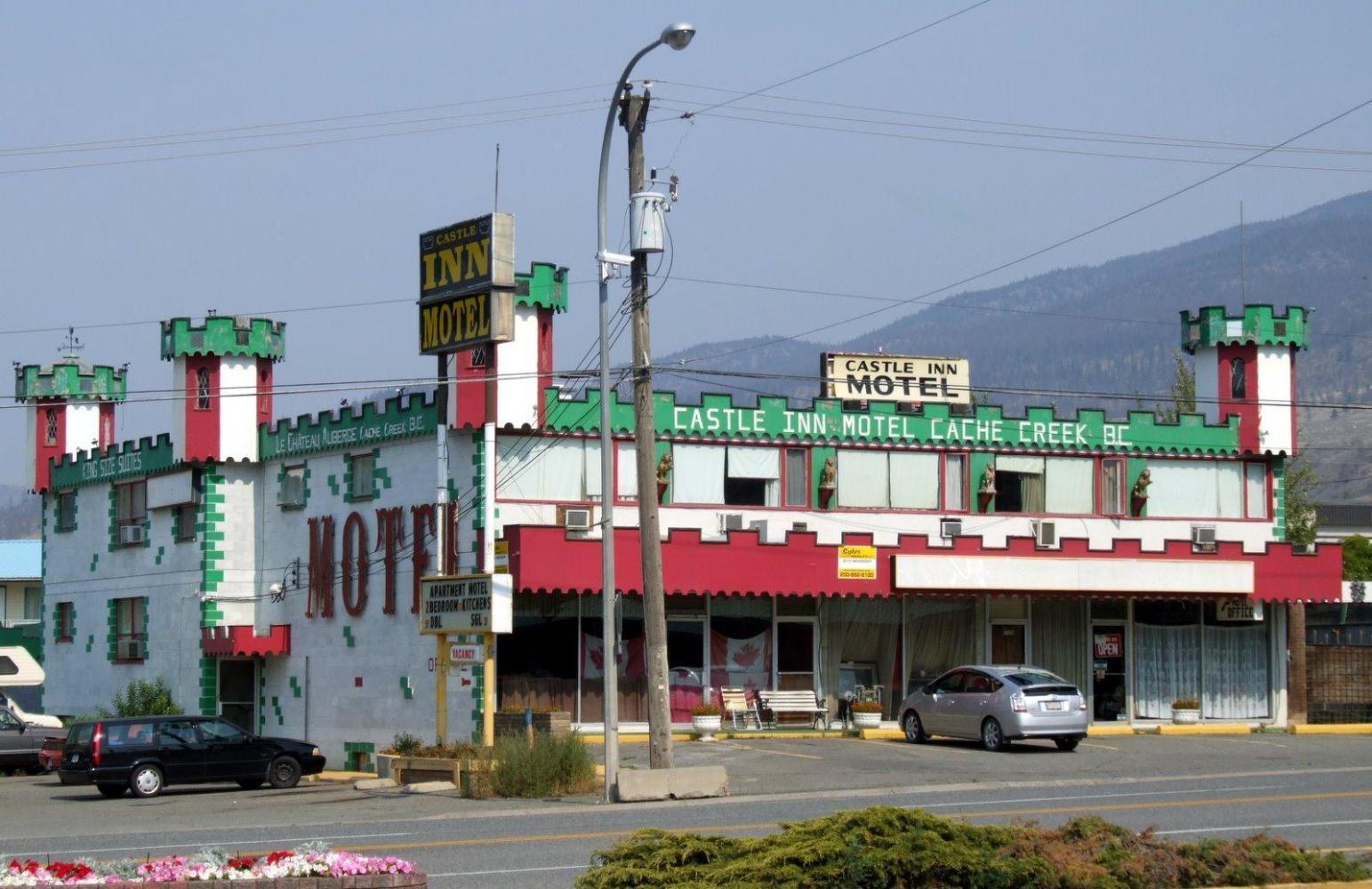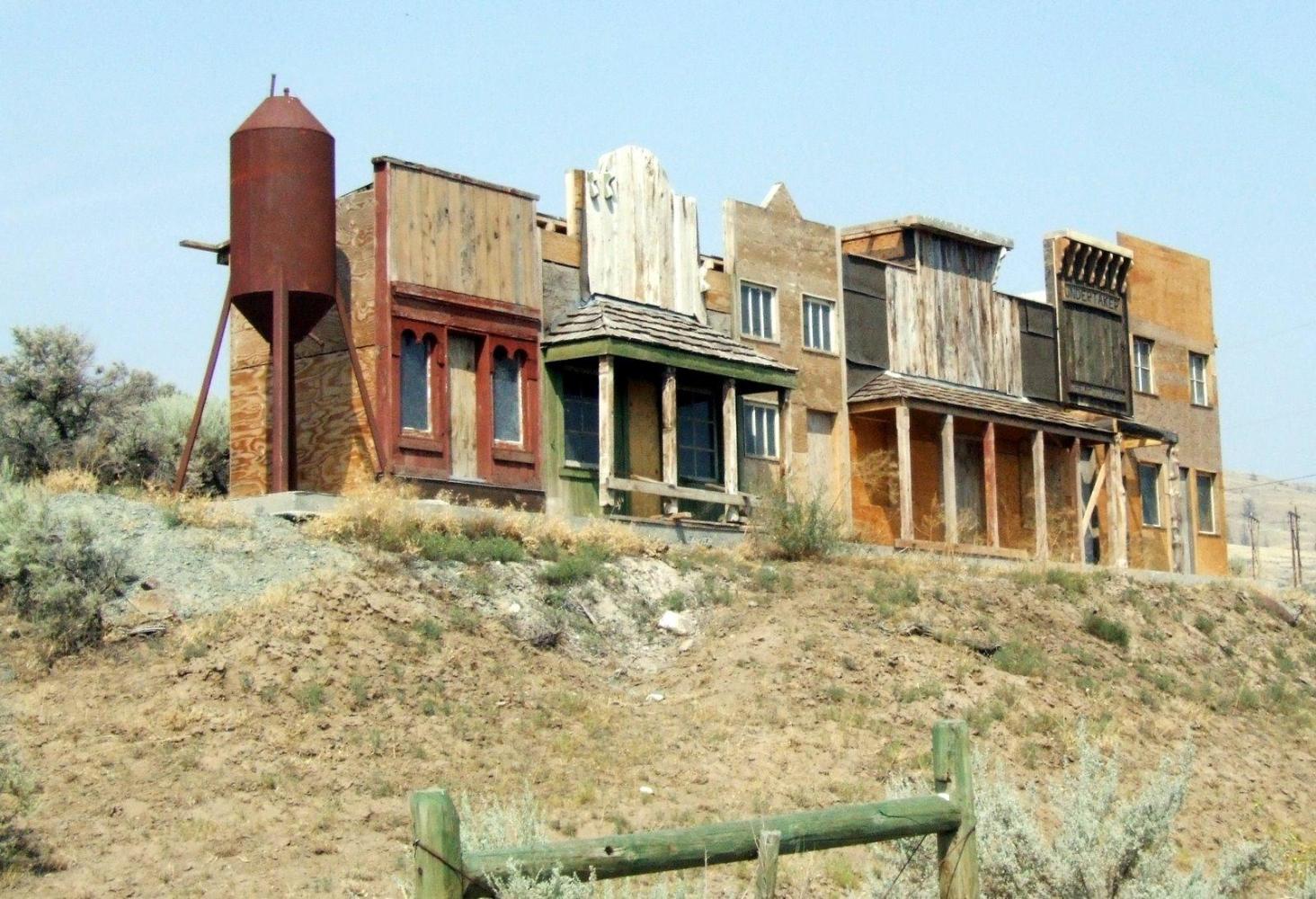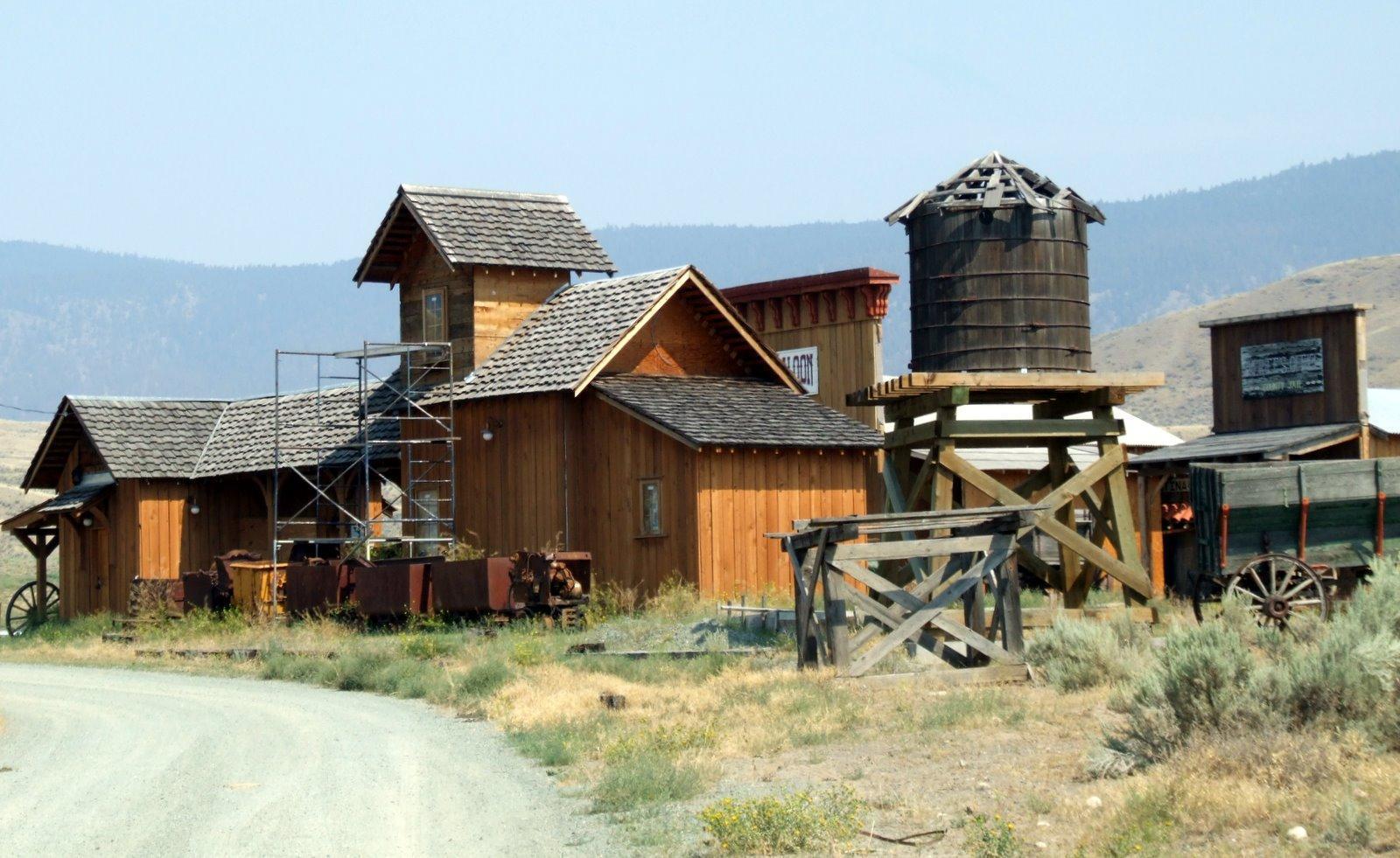August 17: Spences Bridge to Savona, British Columbia

| Heart | 2 | Comment | 0 | Link |
YOU RARELY KNOW with whom you're sharing the road. Drivers assume you're local, however many bags you carry. You in turn think little of them, especially in North America. In Europe, we're used to seeing cars and trucks from every country of the continent, from the Arctic Circle to the Mediterranean, from the Atlantic to the Urals. In North America, everything comes from North America, especially this far north.
Well, it ain't always necessarily so.
Yesterday we had excited waves from an old car covered in stickers. The enthusiasm puzzled us until I spotted a French registration plate. They in turn had seen the blue, white and red flag on the back of my bike. A French car in Canada - why go to that effort unless you were driving round the world, or much of it.
And then this morning Steph spotted a Danish car. Not just an import with its original front number plate - in many places here a front number plate isn't obligatory - but the real thing. We are not alone, even if the effort is different.
As for our own ride, things grew a little better today. We left at 7am to escape some of the traffic and to finish before the worst of the heat. It has been 38 for several afternoons and the humidity is soupy,
Gently, the countryside has changed again, several times. At first it was like yesterday, arid and lifeless but for scattered trees. This is where gold-seekers tried their luck on the way to the Caribou fields. Some grew rich; more just starved.
It is easy to imagine the suffering, patient hopefuls as they sifted the few rivers. They worked, admittedly in water, in the heat we have been suffering. And those who turned soil and chipped rocks must have hurt even more.
They seem remarkable now, those times. They were when we could throw up all or what little we had and know that even if we found nothing, times would be no worse than they were,. Things could only be better. Some died; most went home disillusioned. And yet so gripping is the idea of something for nothing that gas stations here sell plastic gold-panning kits and tales of the great adventurers.
The road climbed this morning. As it rose, so beside it did strange earth sculptures. The great mountains and deep canyons were created by unbelievable force so long ago that we can't imagine how long. But the earth shapes, sometimes tall and rippled like a half-open theatre curtain, sometimes brutal and upright like an animal on hind legs, its distinguishing features blurred and made almost invisible.
My guess is that melting snow brings mountain soil into the valleys. There bit lies heaped, compacted by its own weight. And over many summers the wind and heat have hardened and shaped it.
I have never been to the Syrian desert, and yet today we rode for an hour in the sand scenery I remember from photos brought home by others. This Biblical countryside and were it not for the strikingly modern highway that crossed it, it would have been no surprise to see a bearded figure in rough clothes and sandals leading goats on a rope.
Steph said it reminded her of Pakistan. She hasn't been there any more than I have been to Syria but, again, the way the road clung to a mountain ledge, a wall to the left, a plunge to the right, and then reached a line in the sky before descending the other side.
The bottom of the fall is Cache Creek. There are many explanations of the name but none of them established truth. Roads divide here. One route goes straight on north and the other, ours, turns right and remains Highway 1. Again the land rose and we noticed three things. The first was how poor was
the land to which Indians had been banished. The second was that an Indian home beside the road had one of those life-sized silhouettes of a slumping cowboy, which seemed at the very least inappropriate. And the third was that just before Savona, and beside a rodeo ground, a man is building his own Wild West town.
There are realistic frontages, even a couple of horses. It would look all the better were the sides not made from plywood. But then it's clear from scaffolding that work is in progress. We'd have wandered in for a closer look but the place is cordoned with No Trespassing signs.
We are camping tonight in the provincial park at Savona, named after a passing Frenchman. We overlook a large lake fringed by more of those dead mountains. The sun is falling and the furthest mountain, which from here appears to close the lake but in reality merely fringes it, is just a grey silhouette. The air looks misty but the warden says it's smoke from forest fires beyond Kamloops to the north. The countryside is brittle and dry, partly because of the heat but more because so many trees have been killed by pine beetles. They are ready to burn.
There are two German cyclists here and two Austrians. The Austrians, Jürgen and Marianne, from Linz, on the Danube, are far friendlier. They are riding down the west coast to California. They are not keen to talk to the Germans.
"To us, Germans are like the big brothers next door," Jürgen said. I told him that a German once told me that Austrians were "Germans with a sense of humour." Jürgen looked amazed at the honesty and self-deprecation. He didn't think it very German.
| Rate this entry's writing | Heart | 3 |
| Comment on this entry | Comment | 0 |



